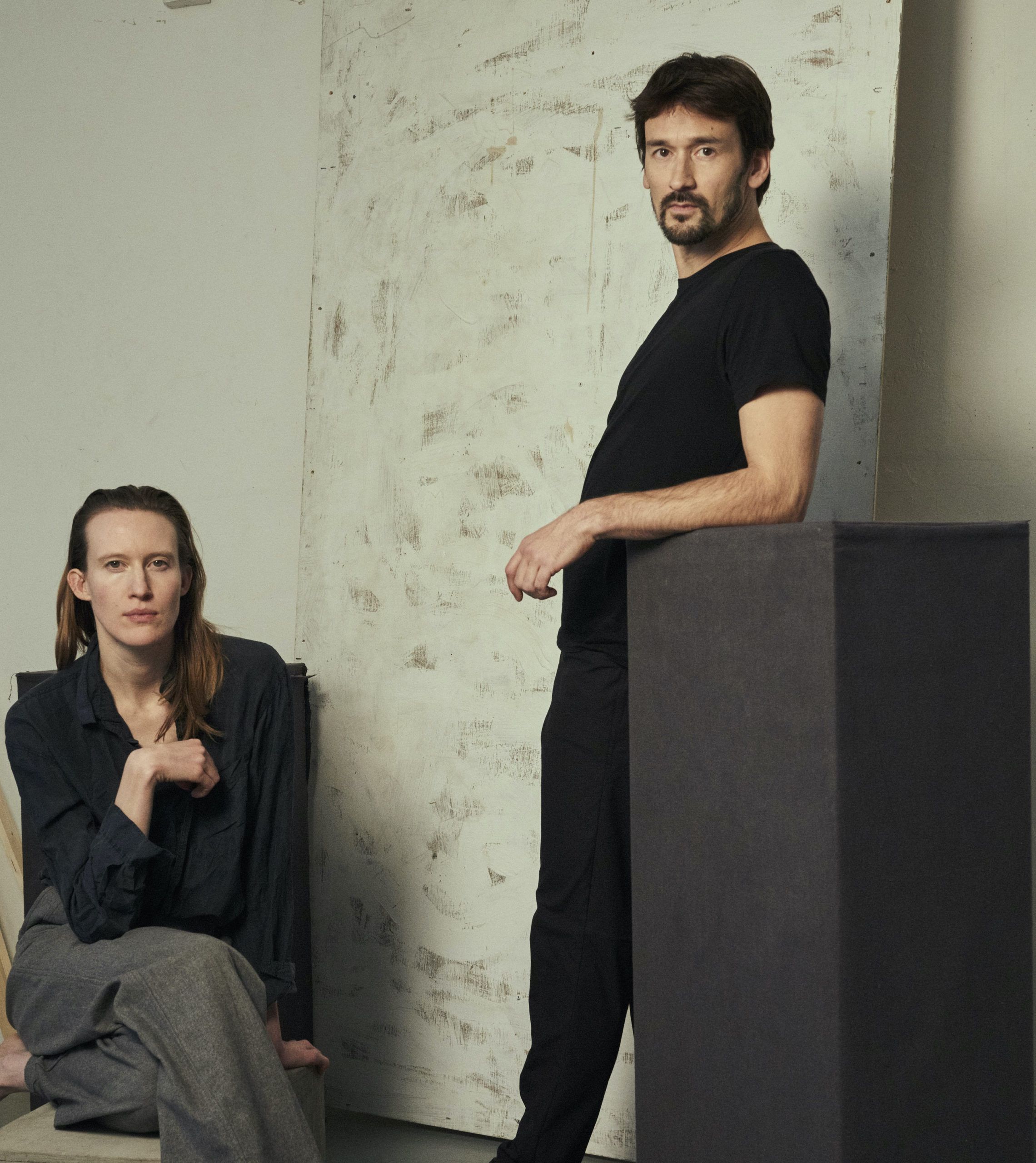
Westdeutsche Zeitung > Questions for a city: What do young people need to realise their dreams?
Wupper-Topia: Students of the Kohlstrasse Vocational College and the Langerfeld Comprehensive School Develop a Utopia of Wuppertal with Artists.
Wuppertal. What will the city look like in 2030? How should the Pina Bausch Centre be designed? This and much more was answered by the young people of Wuppertal with Michael Carter and Gala Moody.
by Anke Strotmann, Westdeutsche Zeitung
[translated from German]
The Pina Bausch Centre is to become a place that appeals to many people. “The content concept combines tradition and awakening, artistic excellence and democratic understanding of art, international charisma and involvement of the urban society,” it says on the homepage. To find out what young people want from this place, the dancers and project leaders Gala Moody and Michael Carter from Cie.Ofen came up with the symposium “Wupper-Topia”. Over a period of two weeks, as part of the “Under construction” festival, which took place from 21 to 29 November, they produced a film that summarises the ideas of pupils from the Berufskolleg Kohlstraße and the Gesamtschule Langerfeld.
What occupies young people in Wuppertal? What do they appreciate about the city? What do they need to realise their dreams? These were just some of the questions that Gala Moody and Michael Carter asked the students. The result is a 12.5 minute film collage that shows what needs young people aged 16 to 20 have. The project was mostly done digitally due to the Corona pandemic. “We worked 95 per cent online,” says Australian-born Michael Carter in a Skype interview. Questions and answers were exchanged via WhatsApp chat, in German and in English. This was a big challenge for the two because they did not know the students.
Cie.Ofen
Cie.Ofen sees itself as a creative base for dancers and directors. Behind Cie.Ofen are Gala Moody and Michael Carter, who have over 15 years of experience in world-renowned companies such as Tanztheater Wuppertal Pina Bausch and Ultima Vez / Wim Vandekeybus. Gala and Michael work across disciplines, drawing influence from literature, theatre, sculpture, poetry, audio-visual and performance art in their creations. The name Cie.Ofen is an anagram derived from the title of Cie.Ofen’s debut work One Final Evolutionary Note, which premiered at Spring Forward Festival (Umeå, Sweden) in 2014 and for which Cie.Ofen was selected as a priority by Aerowaves. The film Wupper-Topia had its streaming premiere during the festival week “Pina Bausch Zentrum under construction”. Like numerous other videos of the festival, it is available in the media library as well as at Cie.Ofen:
under-construction-wuppertal.de
ofencoarts.com/productions
Between adaptation and the desire for change
“Two weeks is very short for a project like this, but we wanted to be able to talk to the young people about Utopia,” says Gala Moody. To have a basis, the two project leaders first ask questions about themselves and what they like about Wuppertal. “Then we slowly moved on to asking what they don’t like about Wuppertal and what they would like to change,” says Moody. These were very subjective approaches, he says, as the students had different socio-economic backgrounds. “It’s often more of a challenge for the young people to adapt than to change the environment to fit what they themselves would like to do in life,” says Carter. The artists wanted the young people to give the project the mandate, so to speak, to perhaps bring about change.
Racism is a huge issue
“We took part without knowing much,” says Christiane Schröder, teacher of the EF level music course at Langerfeld Comprehensive School. At the beginning, the students were overwhelmed with one task per day. But then they settled into a pace that suited them better. Using tasks such as “Imagine it’s 2030”, the students created a very personal utopia, which they sent to the two artists as audio or video. “In the films they told what they dreamed of,” says Schröder. The ideas ranged from personal wishes for a family of their own and a car to more cultural life in the city and world peace.
“Overall, it was very exciting, also for the students,” says Schröder. “It was not just academic learning that was required, but someone was also interested in their wishes and dreams.” To address their future goals and perspectives, he says, it is important to reflect on questions like “Where is my home?”, “Where do I position myself in the whole?”, “What are the perspectives and what is needed for that?”
Many students who participated in the project have a migration background. That’s why the topic of racism is a huge issue, says Schröder. Knowing that they are being listened to gives them courage. “One pupil said: ‘We say what we want. Those who hear us can also push it a bit’,” says Schröder. In small groups, the students worked out what the Pina Bausch Centre should look like. The students agreed: the centre should be a place for all cultures. One group even rolled out a red carpet for visitors of all ages.